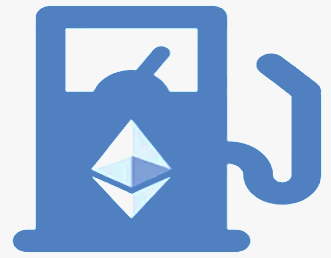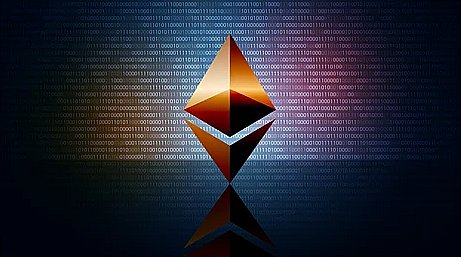Accredited InvestorsAltcoinAnatoli UnitskyAnti-Money Laundering (AML) In CryptoAPIArbitrageArtCoin TokenArticle DirectoryASICAuction Terminology GlossaryBasics of Stock Market InvestingBear MarketBest Crypto Payment Provider In the WorldBitcoinBlockchainBlockchain ConfirmationBlockchain Consensus MechanismBlockchain ForkBlockchain GlossaryBored Ape Yacht ClubBuild a Business That OutperformsBull MarketBuying SkyWay SharesByzantine Fault Tolerance (BFT) ExplainedCasascius CoinCentral Bank Digital Currency (CBDC)Centralized Crypto ExchangeCoinCoinsetCold WalletCollateralCommodity Futures Trading Commission (CFTC)Cross-Chain TechnologyCRUCrypto ExchangeCrypto GlossaryCrypto JokesCrypto Terms to KnowCrypto TickerCryptocurrencyCryptographyCryptojackingCryptounit BlockchainCryptounit GlossaryCryptounit ProgramdApp (Decentralized Application)Dead CoinDecentralized Exchange (DEX)Decentralized Finance (DeFi)Difference Between Bitcoin and EthereumDifferent Ways of Investing MoneyDigital CurrencyDistributed LedgerDo Your Own Research (DYOR)Dollar Cost Averaging (DCA)Dow Jones Industrial Average (DJIA)EncryptionERC-20ERC-721EthereumEvoScentFear Of Missing Out (FOMO)Fear, Uncertainty and Doubt (FUD)Fiat MoneyFNT Fintech CompanyGenesis BlockGlobal Unit PayGlossary of Banking TermsGlossary of Business TermsGlossary of Financial TermsHalvingHODLHot WalletHow Do I Start InvestingHow Rich is Satoshi Nakamoto?How to Create a BlockchainHow to Find Private InvestorsHow to Get Into FintechHow to Program Smart ContractsI Am Thrilled to Be a Part of This Global ProjectInitial Coin Offering (ICO)Initial Public Offering (IPO)Initial Token Offering (ITO)Innovation Basalt TechnologyInnovative Transportation TechnologiesInternational Bank Account Number (IBAN)Investing in Gold Mining StocksInvesting in Gold MiningJagerJoy of Missing Out (JOMO)Know Your Customer (KYC)LedgerLiquidity in CryptocurrencyMaker and Taker Fees in Crypto TradingMarket Capitalization (Market Cap)Meme CoinMetal Credit CardMetaMaskMillenials Now Have Access to Generational WealthMy Best Investment EverNew Digital EvolutionNFT GlossaryOff-Chain TransactionsOn-Chain TransactionsOpen Edition NFTPeer-to-Peer (P2P)Personal Loan GlossaryProbably the Best STO on the MarketProof of Stake (PoS)Real Estate Glossary of TermsReal Estate Investing GlossaryRebase TokenSecurities and Exchange Commission (SEC)Security Token ExchangesSecurity Token Offering (STO)Soulbound Decentralized Identities for Security TokensSoulbound ID Launch by Stobox Proves a SuccessSoulbound TokensStoboxStock Market GlossaryTestimonialsTether Platform and Token (USDT)UnitEx ExchangeUnitsky String TechnologiesUNTBUSDUValidatorWe Started Investing When We Were 25What are Blue Chip NFT?What are Blue Chip Stocks?What are Crypto Assets?What are Crypto Smart Contracts?What are CryptoPunks NFT?What are Digital Assets?What are Digital Collectibles?What are Gas Fees?What are Gas Wars?What are Hashmasks?What are Non Fungible Tokens?What are Non-Sufficient Funds (NSF)?What are Soulbound Tokens (SBT)?What are Stablecoins in Crypto?What are Transactions Per Second (TPS)?What are Utility NFTs?What are Utility Tokens?What Does Burning Crypto Mean?What Does Diamond Hands Mean?What Does Paper Hands Mean?What Does To The Moon Mean?What Does WAGMI Mean?What Happened to Satoshi Nakamoto?What is a 51% Attack?What is a Baby Boomer?What is a Backlink?What is a Banner?What is a Barcode?What is a Bid-Ask Spread in Crypto?What is a Block in Blockchain?What is a Block Reward?What is a Blockchain Address?What is a Blockchain Node?What is a Blockchain Oracle?What is a Blog?What is a Bond?What is a Bot?What is a Broker?What is a Business Accelerator?What is a Cash Cow?What is a Commercial Bank?What is a Commodity?What is a Con?What is a Credit?What is a Credit Limit?What is a Credit Rating?What is a Crypto Airdrop?What is a Crypto Bridge?What is a Crypto Scam?What is a Crypto Token?What is a Crypto Wallet?What is a Crypto Whale?What is a Crypto Winter?What is a Cryptocurrency Public Ledger?What is a Cryptocurrency Roadmap?What is a DAO?What is a Dark Pool?What is a Day Trader?What is a Dead Cat Bounce?What is a Default?What is a Derivative?What is a Digital Credit Card?What is a Fiscal Quarter?What is a Fungible Token?What is a Governance Token?What is a Grace Period?What is a Hard Fork?What is a Hot Wallet?What is a Hybrid Blockchain?What is a Hybrid PoW/PoS?What is a Joint Account?What is a Market Cap?What is a Merkle Tree in Blockchain?What is a Mining Farm?What is a Nonce? What is a PFP NFT?What is a POS System?What is a Prepaid Card?What is a Private Blockchain?What is a Private Key?What is a Public Blockchain?What is a Public Key?What is a Reserve Currency?What is a Ring Signature?What is a Routing Number?What is a Rug Pull in Crypto?What is a Safe Deposit Box?What is a Satoshi?What is a Security Token?What is a Seed Phrase?What is a Shitcoin?What is a Sidechain?What is a Soft Fork?What is a Spot Market?What is a State Bank?What is a SWIFT Code?What is a Tax Identification Number (TIN)?What is a Time Deposit?What is a Transaction Account?What is a Variable Interest Rate?What is a Virtual Assistant (VA)?What is a Virtual Card?What is a Virtual Currency?What is a Visa Card?What is a Whitelist in Crypto?What is a Whitepaper?What is Accounts Payable (AP)?What is AMA in Crypto?What is Amortization?What is an Accrual?What is an ACH Transfer?What is an Actuary?What is an Addendum?What is an Algorithm?What is an Angel Investor?What is an Annuity?What is an Asset?What is an ATM?What is an Atomic Swap?What is an Audit?What is an Avatar?What is an EIN?What is an Embargo?What is an Entrepreneur?What is an IDO (Initial Dex Offering)?What is an Interest Rate?What is an Internet cookie?What is an Investment Bank?What is an NFT Drop?What is an NFT Floor Price?What is an Ommer Block?What is an Orphan Block?What is an Outstanding Check?What is an Overdraft?What is Artificial Intelligence (AI)?What is B2B (Business-to-Business)?What is B2G (Business-to-Government)?What is Bartering?What is Bitcoin Dominance?What is Bitcoin Pizza Day?What is Blockchain Immutability?What is Blockchain Used For?What is BRICS?What is Business-to-Consumer (B2C)?What is C2C (Customer to Customer)?What is Capitalism?What is Catfishing?What is CFD Trading?What is Check Kiting?What is Cloud Mining?What is Communism?What is Content Marketing?What is Decentralization in Blockchain?What is DeFi in Crypto?What is Delisting?What is Depreciation?What is Digital Marketing?What is Diversification?What is Double Spending?What is Dumb Money?What is Dumping?What is Earnings Per Share (EPS)?What is Economics?What is Email Marketing?What is Equity?What is Etherscan?What is Fintech?What is Foreign currency?What is Forex?What is Fundamental Analysis (FA)?What is GameFi?What is Generative Art NFT?What is Gwei?What is Hard Currency?What is Hash Rate?What is Hashing in Blockchain?What is Inflation?What is Initial Game Offering (IGO)?What is Interest?What is Interest Income?What is Mainnet?What is Mastercard?What is Metaverse in Crypto?What is Mining in Cryptocurrency?What is Minting NFT?What is Mobile Banking?What is Money Laundering?What is NFT Alpha?What is NFT Metadata?What is NFT Rarity?What is NGMI Meaning?What is Nominal Interest Rate?What is Online Banking?What is Open-End Credit?What is OpenSea NFT Marketplace?What is Personal Identification Number (PIN)?What is Play-to-Earn?What is Polygon?What is Proof of Authority (PoA)?What is Proof of Work (PoW)?What is Public Key Cryptography?What is Pump and Dump?What is Quantum Computing?What is Refinancing?What is Retail Banking?What is Ripple?What is Sharding?What is Slippage in Crypto?What is Smart Money?What is Solvency?What is Soulbound ID?What is SSL?What is Staking in Cryptocurrency?What is Technical Analysis (TA)?What is Testnet?What is the Ask Price?What is the Better Business Bureau (BBB)?What is the Bid Price?What is the Dark Web?What is the InterPlanetary File System (IPFS)?What is the Gold Standard?What is the Lightning Network?What is the Prime Rate?What is the Sandbox?What is the Secondary Market?What is the World Bank?What is Tier 1 Capital?What is Tokenomics?What is TRC-20?What is Universal Banking?What is Unspent Transaction Output (UTXO)?What is Usury?What is Volatility in Crypto?What is Wash Trading?What is Web3?What is Whisper?What is XRP?What is Zero-Knowledge Proof (ZKP)?Who is Beeple?Who is Satoshi Nakamoto?Who is Vitalik Buterin?Why Tokenization is a Safe HavenWhy You Should Try Your Hand at Trading
What are Gas Fees?
- Home
- Blockchain Glossary
- What Are Gas Fees?
The term gas refers to the Ethereum network's pricing mechanism.

What Are Gas Fees?
A system of this type estimates the fees for carrying out a transaction or carrying out a smart contract operation. While ether (ETH) is the currency that powers the Ethereum network, gas is a specialized unit used to calculate how much processing power a certain activity takes. Demanding tasks, by definition, will have a greater gas cost than procedures that need less computing resources.
Fees are paid in ether, but gas and ether are not the same thing. Computing activities are quantified in terms of "gas cost". Each unit of gas, on the other hand, has a "gas price" defined in ether. As a result, each transaction has a specific "gas price" for each unit of gas.
In other words, the gas cost is the quantity of work, whereas the gas price is the price paid for "per hour" of work. This correlation, combined with the gas limit, determines the overall fee for an operation or transaction.
Gas was created to recompense miners for their efforts in maintaining and securing the blockchain. Following the implementation of the proof of stake algorithm in September 2022, gas fees became the reward for staking ETH and participating in validation. There would be few reasons to stake ETH and become a validator if the fees were absent. Without validators and the job they perform, the network would be jeopardized.
If you need your transaction validated quickly, pay greater gas prices so that validators are motivated to check your transaction first. Setting a low gas price, on the other hand, might cause your transaction to get stalled since miners will have no motivation to validate it.
The gas pricing system is critical because it ensures that prices are imposed in a fair way. As a result, it avoids resources from being spent on actions that aren't beneficial to the Ethereum network.
Because the gas price is made up of very small numbers, it is usually expressed in gwei rather than ETH, with 1 gwei equal to 0.000000001 ETH.
The gas fee is computed by multiplying the Gas Limit by the Gas Price per Unit. So, if the gas limit is 20,000 and the unit price is 200 gwei, the computation is 20,000 x 200 = 4,000,000 gwei, or 0.004 ETH.
Gas and the Ethereum Virtual Machine (EVM)
Ethereum is a platform and system that allows for the creation of various blockchain and cryptocurrency use cases. Known as the Ethereum Virtual Machine (EVM), it acts as a virtual computer that runs blockchain-based applications.
The Ethereum blockchain is part of the EVM, which means cryptocurrencies built on it, such as DAI (a stablecoin on the Ethereum blockchain), require gas fees in gwei for transactions. The EVM enables the creation of decentralized applications, cryptocurrencies, and tokens.
Gas Fees After "The Merge"
Ethereum has recently undergone a major upgrade known as "The Merge." This upgrade aims to improve the scalability and efficiency of the Ethereum network, including the transition to a proof-of-stake consensus mechanism. As a result of the merge, gas fees on the Ethereum network have become a hot topic of discussion among the cryptocurrency community.
Gas fees are the cost associated with conducting transactions on the Ethereum blockchain. These fees are necessary to ensure that the network remains secure and decentralized. In simple terms, the more transactions that occur on the network, the higher the gas fees. With the increase in popularity of decentralized applications and the growing use of the Ethereum network, gas fees have been rising steadily over the past few months.
Following The Merge, gas fees have seen a significant increase. This is due to the increased demand for Ethereum and the increased use of the network. The high gas fees have caused concern among some users, as they can make it difficult to conduct transactions and interact with decentralized applications.
However, it is important to note that this is a temporary situation. The Ethereum network is constantly evolving, and the development team is working on solutions to reduce gas fees in the future. The merge is just the first step towards a more efficient and scalable Ethereum network.
Related Articles

Ethereum
With its powerful smart contract capabilities and robust ecosystem, Ethereum has sparked the imagination of developers, businesses, and investors alike.

What are Crypto Smart Contracts?
Although smart contracts became popular in the context of cryptocurrencies, the concept was initially defined by American cryptographer...

Proof of Stake (PoS)
The Proof of Stake (PoS) system was created as an alternative to Proof of Work (PoW). Miners on PoW-based blockchains, such as Bitcoin, can only be rewarded if they find...

Validator
A validator is a node in a proof-of-stake (PoS) blockchain network that is responsible for validating transactions and maintaining the integrity of the network.

Gwei
Gwei is a denomination of ether (ETH), the digital coin used on the Ethereum network. Ethereum, like Bitcoin, is a blockchain platform where users transact to buy and sell goods and services without...
- Home
- Blockchain Glossary
- What Are Gas Fees?